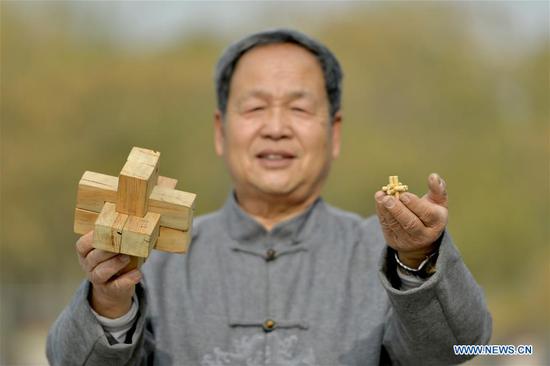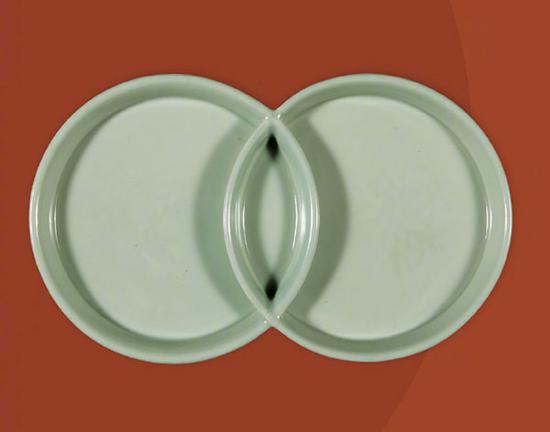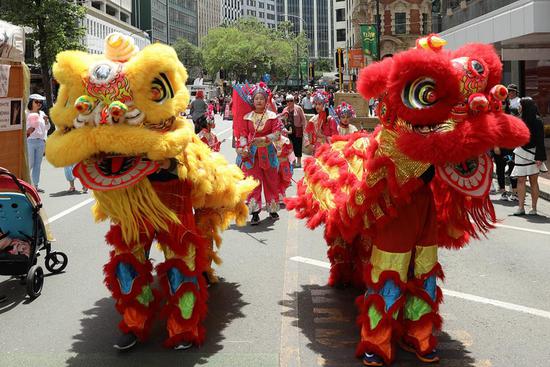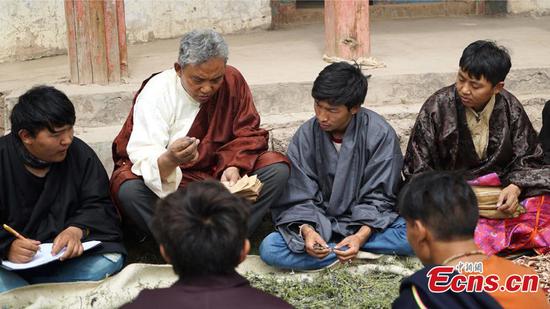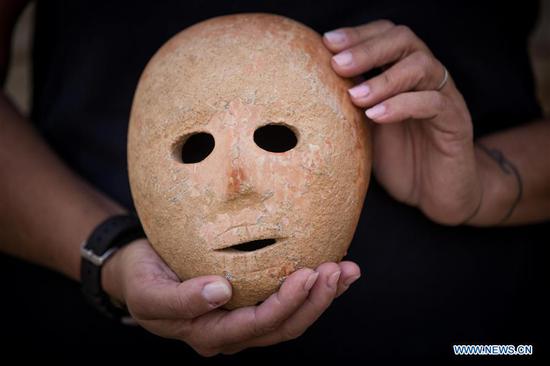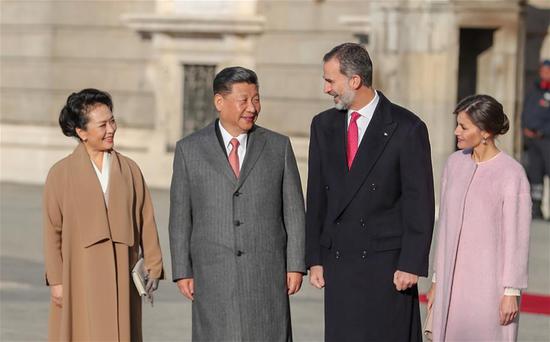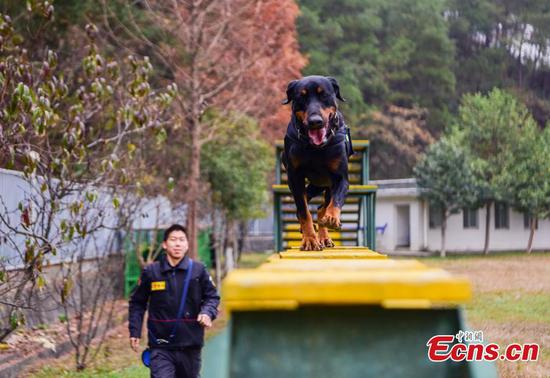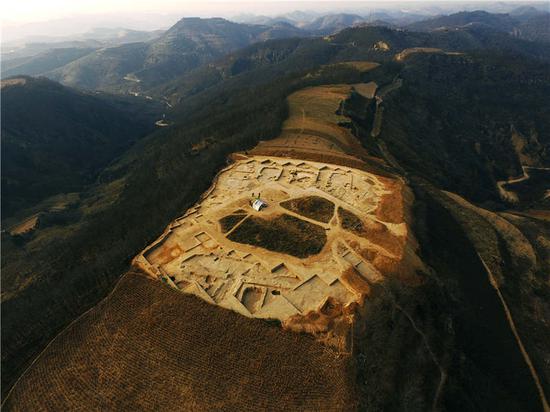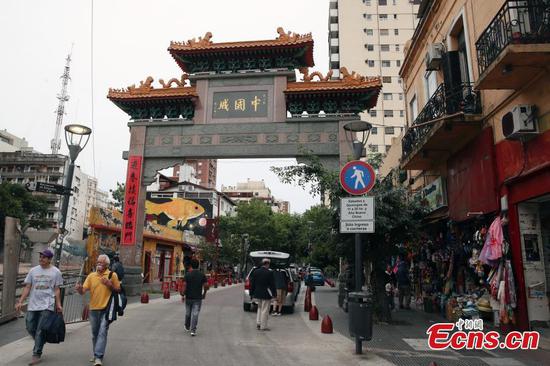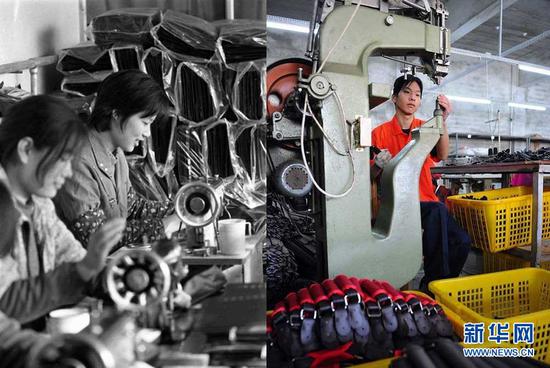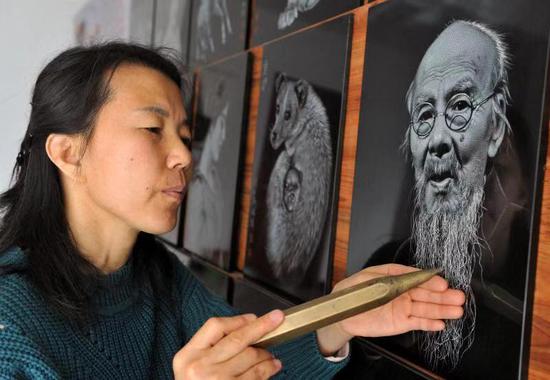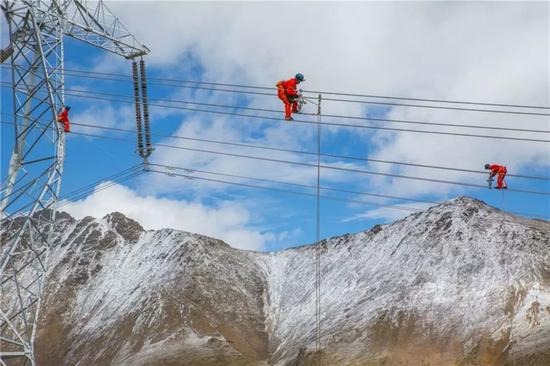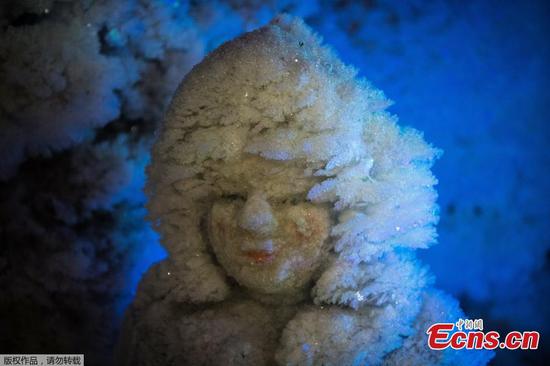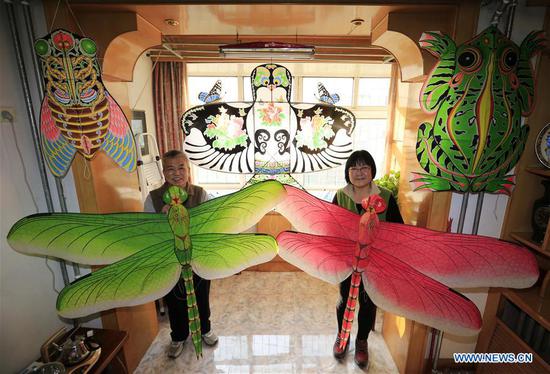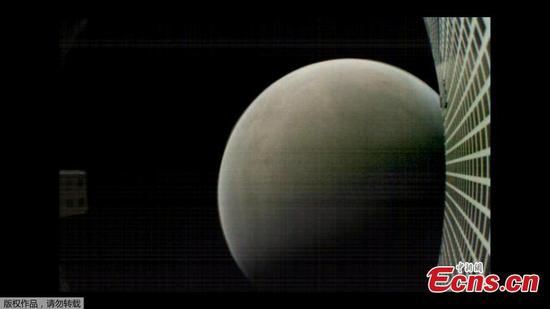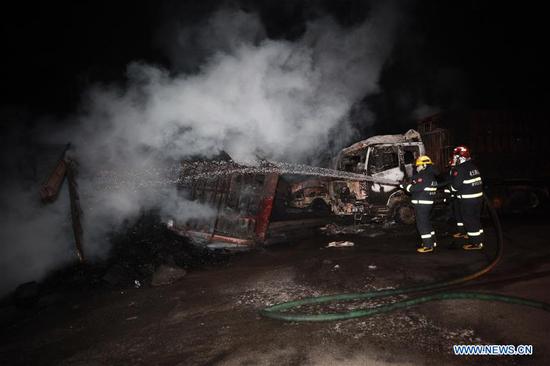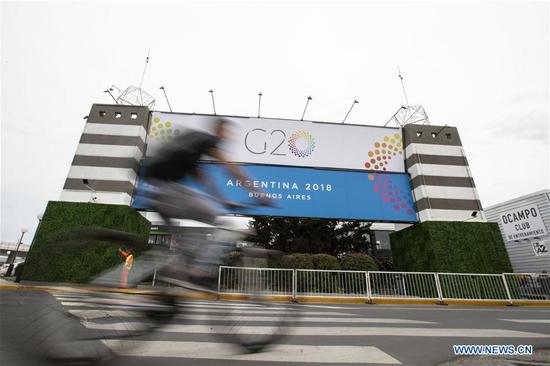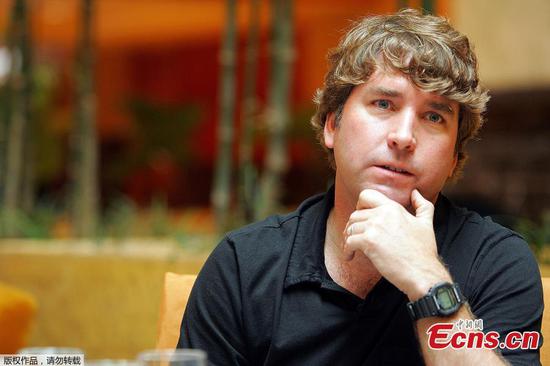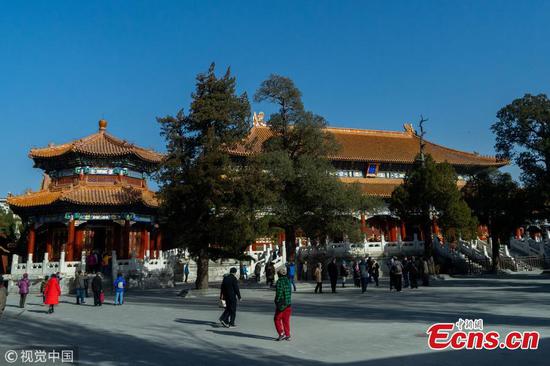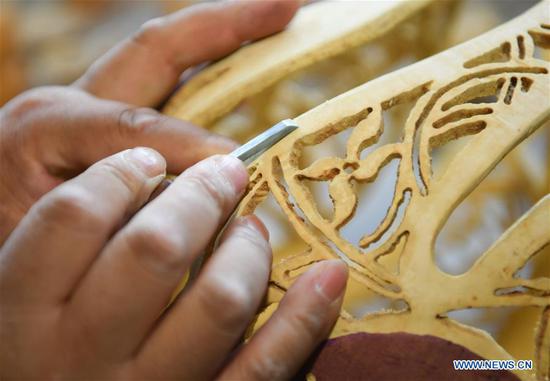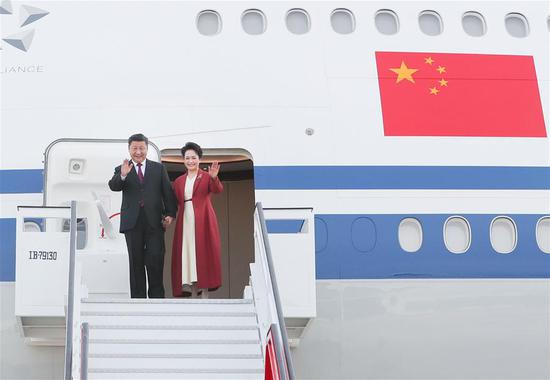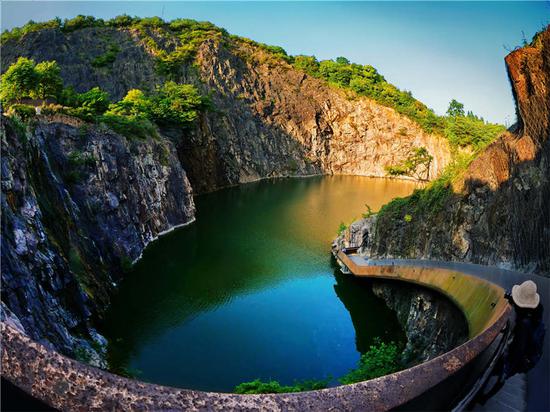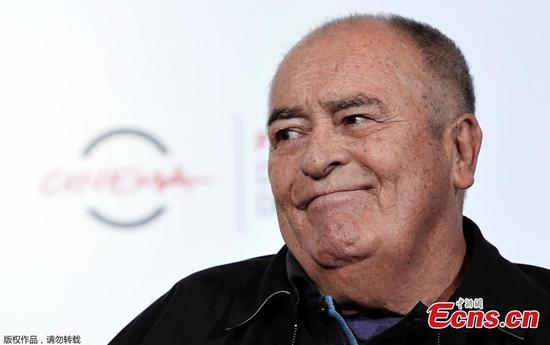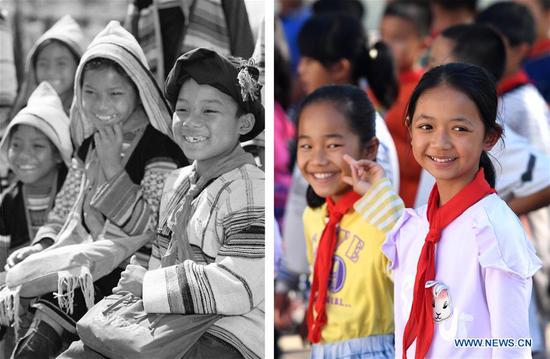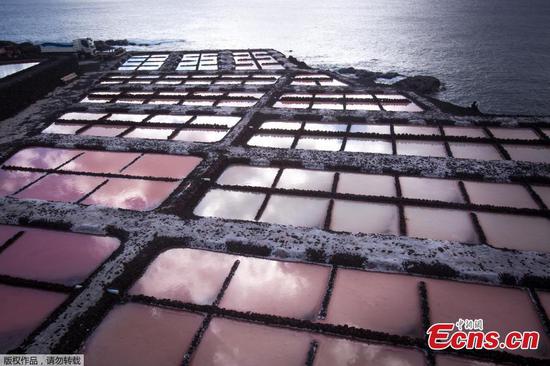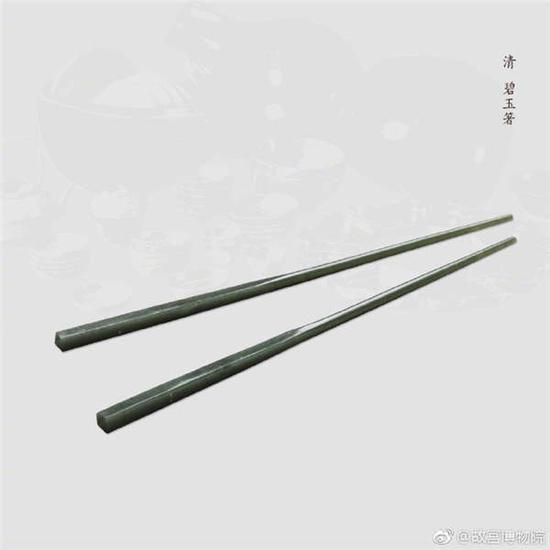From soap bars to Coca-Cola cans, nothing is too strange to collect in the world, but French artist Thomas Sauvin has a fascinating hobby -- collecting other people's memories.
His project Beijing Silvermine is an archive of at least 850,000 abandoned negatives purchased, classified and digitalized by him over the last nine years from a recycling plant on the edge of Beijing.
Women pose with their new refrigerators or TV stands; kids sit beside a Ronald McDonald statue in front of Beijing's first McDonald's, and brides light cigarettes for every man at their weddings.
These nearly forgotten negatives depict the everyday life of Beijing families over a span of 20 years between 1985 when silver film came into widespread use and 2005 when digital photography became the norm.
"The photos offer a unique portrait of time and place," the 35-year-old Sauvin said.
His new photo book will focus on the Beijing World Park. "Around 3 to 5 percent of the photos I have were captured in the park. It is significant to Beijingers in the 1990s."
The theme park opened to the public in 1993. It consists of more than 100 miniaturized attractions such as the Egyptian pyramids and the Eiffel Tower in France.
Traveling abroad was not accessible and affordable for many Chinese at that time. The government built the park to give visitors the chance to see the world, he said.
He has published five photo books and organized many exhibitions in China and around the world. Now, with so many changes happening in China, he hopes both Chinese people and foreigners can reflect on the past to see the country in a new light.
"Foreigners who love China are obsessed with its calligraphy and Kung Fu, while those who hate China focus on problems such as pollution and demolition," Sauvin said. "However, they ignore the lives of everyday people."
After seeing the exhibitions, many foreigners told him that Chinese share many similarities with them, and the pictures reminded them of their own home and life when they were young.
FROM TRASH TO TREASURE
Sauvin fell in love with Beijing when he first visited the city in 1999. Four years later, he came back and studied business administration at the University of International Business and Economics.
He worked for a British archive after graduation, buying prints by contemporary Chinese photographers across the country.
He once looked for old negatives online and kept seeing the name Xiaoma, or Little Ma in Mandarin.
Little Ma made a profit from extracting silver nitrate for laboratories from discarded X-ray film and light disks in hospitals, and negatives found in landfills.
They met at Ma's private recycling plant. At a price of 30 yuan (around 4 U.S. dollars) per kilo, Sauvin purchased rice bags of dusty negatives.
Their cooperation has lasted for nine years even though he still does not know Ma's real name.
Sauvin used to get 50 kg to 60 kg abandoned negatives from Ma every two months at first. With digital images becoming more and more popular, he only visits Ma twice a year.
"Every time we meet, I feel it might be the last time for Ma to sell me the negatives," he said.
He spends around two hours every day sifting through the negatives to get familiar with them. When spotting something interesting or discovering a recurrent theme, he selects them to be scanned.
"The Beijing Silvermine shows no individual stories but instead highlights a certain period of history displayed by a group of photos with the same theme," Sauvin said.
In the 1980s, classic film cameras were accessible but still expensive in China. People only used the camera for important moments, such as a birth, a wedding, or birthday parties.
The images changed as photography became popular in the early 1990s. People started posing beside their first TVs, refrigerators, and telephone sets.
Western cultural elements such as the portrait of Marilyn Monroe and the Ronald McDonald statue appeared in photos, and more pictures were taken in karaoke venues, theme parks or even foreign countries.
"Chinese did what the French did in the 1960s when households began acquiring refrigerators. People in my country also took photos with this electric appliance," he said.
NO STORY LEFT BEHIND
Critics say Sauvin publishes photos without their owners' permission, but he emphasized that what he explores is not the people but the refrigerators, TVs or posters in the pictures.
"I considered their opinions for a long time but felt the responsibility to share these invaluable negatives," he said.
Sauvin has shared around 1,000 photos with the public. He said he rarely uses more than one photo per person and always respects others when choosing the photos to be released.
Zeng Huang, a photographer, engaged in legal issues on images, believes that Beijing Silvermine is a modern form of art regarding the creativity, selected pictures and reflections on China's great changes over the past 40 years.
Zeng said the legal issues on this project are open to discussion; however, "appropriation is allowed in modern art."
Sauvin admitted he has no plan to look for the owners of the photos because there is a slim chance of finding them.
Beijing resident Qiao Zhi is among the five or six people who contacted him and claimed to know the subject of a Beijing Silvermine image.
Qiao saw her childhood photo in an online article. She contacted Sauvin on China's Twitter-equivalent Sina Weibo, who subsequently offered to send all relevant photos of her.
"I don't think my rights were violated. The photos were thrown away by my grandma when she moved to a new house, and all the images Sauvin presented are positive. I'm moved that a Frenchman can focus on our recent history," the 34-year-old Qiao said.
"I started 'adopting' these discarded photos since 2009. I saved them and grew up with them. I did not give birth to them, but I feel they are my kids in a way," Sauvin said.









